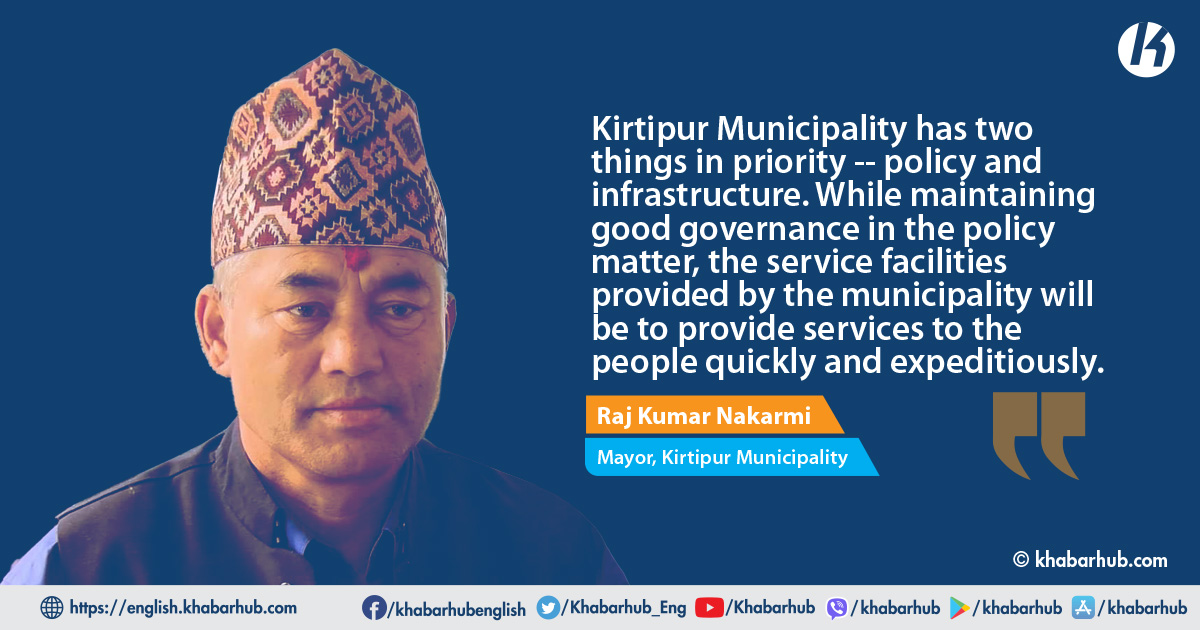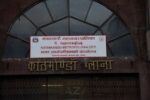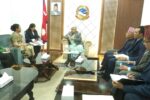KATHMANDU: With the completion of local level elections, newly elected representatives have started working in their municipalities.
After getting the representatives elected in the second local level election under federalism, all the municipal inhabitants are now expecting a leap in development and prosperity.
Newly elected representatives at the local levels seem well aware of the public expectations and their (the elected officials’) limitations.
Khabarhub approached Kirtipur Municipality Mayor Raj Kumar Nakarmi to hear his plans for the coming five years.
Here are the excerpts of the interview:
What is the first priority you have given to the development of Kirtipur after you were elected as the Mayor of Kirtipur?
The Kirtipur Municipality has given priority to two things. The first priority is policy matters. The issues of construction of other infrastructure will also be given priority.
In terms of policy, while maintaining good governance in the municipality, the municipality will adopt the policy of providing services to the people quickly and expeditiously.
We are also urging the concerned parties to select the unfinished projects during the construction of infrastructure and complete them as soon as possible. We are working through a separate mechanism for the projects formerly not agreed upon.
What are your plans to address health-related problems?
In the election campaign, we made the commitment to give a 50 percent discount to the citizens of Kirtipur Municipality undergoing treatment at Kirtipur Hospital.
We are carrying out a survey for the same. We are working to analyze how much the municipality has to bear and how much the hospital has to bear. On the other hand, we have started providing free treatment to the senior citizens and children with disabilities of Kirtipur.
The drinking water problem is the main problem in every municipality around Kathmandu Valley. How is the municipality working in this area?
We had complained that the previous leadership turned its deaf ears to the problems relating to clean drinking water.
After getting elected, we called the head of the drinking water branch in Kirtipur and requested him to make a plan to supply water to every tap in a systematic manner.
Accordingly, water is being distributed from Sundarighat in Kirtipur to Lalitpur in Kathmandu. I have requested them to make a plan to install a 6-inch pipe from there to the reservoir of Kirtipur to supply the water to Kirtipur inhabitants as Kathmandu and Lalitpur will have more water from the Melamchi project.
We are committed to materializing our promises.
Kirtipur Municipality is a place of its own historical significance. What are your plans for the preservation of the art and culture of this region?
The task comprises two aspects: the first is protection and the second is promotion. In the matter of conservation, we are conscious that the glory and pride of Kirtipur should be protected.
Kirtipur has as much cultural and historical ground. We will preserve the art and culture. There are old and legendary songs of Kirtipur we will work to immortalize them.
We welcome the tourists and are rebuilding/reconstructing the past glories. Renovation and reconstruction will retain the historical and cultural glory of Kirtipur.
This area has potential for both internal and external tourists. What are the plans of the municipality to develop or promote the overall tourism of this city?
There are many organizations working in the tourism sector. We will establish our connection with all organizations that promote tourism.
Another is propaganda. It is from advertising. Now Kirtipur has become the hub of Newari food. We will further promote it.
We encourage the restaurants and canteens which promote Newari food. We will promote dignified restaurants. We work to make the hotel and restaurant sector dignified.
How has the municipality coordinated with Tribhuvan University (TU)? What are your plans for developing education?
We have a separate plan for higher education. Within our five-year tenure, the Kirtipur Municipality has a plan to produce up to one bachelor-level manpower in every household.
Regarding Tribhuvan University’s role in meeting our targets, they (the university authorities) have expressed their commitment to teaching a student from Kirtipur in various subjects and faculties of Tribhuvan University.
We urge them to adhere to this strictly. TU has been giving scholarships to the Kirtipur citizens in subjects like Micro Biology, and MBA.
We will work towards increasing the scholarship quota if needed. Nepal has been preparing dual citizens through public and private schools. We have a plan to improve the quality of public schools.
What are the plans of the municipality for providing employment to the locals?
Unemployment is not Nepal’s challenge alone. The entire world is striving its best to cope with this problem. This is the challenge of the world.
Kirtipur is also not immune from this challenge. Unemployment is also a big problem in Kirtipur; especially among young girls.
Although our efforts might not be sufficient to overcome the employment issue, we will do our best to minimize the problem by promoting self-help schemes through training.
The municipality will establish a technical school to provide vocational skills to the students. Students produced from technical schools do not have to pay for self-employment. We have made a plan to produce such skilled manpower. We hope it will address the issues relating to unemployment.
What do you plan to do about sanitation in the municipality?
The municipality manages the garbage generated from each household. In addition, we have complained to the organizations working in municipal waste management that they took more money in the name of waste management.
We will make arrangements for practical garbage collection. As far as possible, we set up plants to destroy such waste or to produce compost manure. We are thinking of managing garbage from now on.
What does the municipality do to manage the housing sector?
Housing management is a challenging issue. We are stopping at about 3,000 ropani land halt. There are plans for housing in the area.
The past leadership planned to move away from the land pooling system. But this is not the end of the story. It shows many practical complications and difficulties. It is very difficult for the farmers to keep it to a halt. They are not even allowed to sell.
There are so many things that can’t be sold in pieces. There is a fear of settlement development in an uncontrolled manner.
Provided such a situation comes, the planned development will be impaired for a long time. We are thinking of building a housing sector by finding ways to manage it as much as possible.
How does the municipality plan to move the agricultural sector forward?
There is a plan to distribute fertilizers and seeds to the farmers at affordable prices. There is no land left for agriculture in Kirtipur.
We plan to ensure the farmer counseling through the technical experts. We also try to sell fertilizers at discounted prices. We will find markets for the agro and handicraft products for the Kirtipur people.
What initiatives does the municipality take to protect the rivers around the municipal area?
We had discussions with Bagmati Sanitation Engineers. You will move forward by cooperating with them. Population density is high in three densely populated areas of Kirtipur, Panga, Nagaun, and Kirtipur area.
We have places where the drains produced from there can be treated and dumped in Bagmati. We have the space to bring together 90 percent of the drains produced in the three cities.
By treating the sewage water from this, we can discharge the water into Bagmati. It seems that the compost manure derived from these rivers can help in improving the economic status of the farmers.
Looking at the time 5 years ago, what do you see as the problem of Kirtipur?
The main requirement for Kirtipur is infrastructure development. There is dissatisfaction in Kirtipur due to centralized planning.
There is also dissatisfaction in the settlements outside Kirtipur. This year we will end the sense of discrimination.
We will distribute this year’s budget in an inclusive and proportional manner. When people come with cases, they will be addressed.









Comment